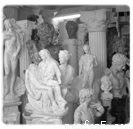0 133732 133740 133746 133750 133756 133758 133762 133768 133770 133776 133782 133786 133788 133792 133798 133800 133806 133810 133812 133816 133818 133822 133824 133826 133827 133828 133830 133831 133832 133834 133836 133840 133842 133846 133848 133852 133858 133860 133866 133870 133872 133876 133882 133888 133890 133896 133900 133902 133908 133912 133918 133926 151629
